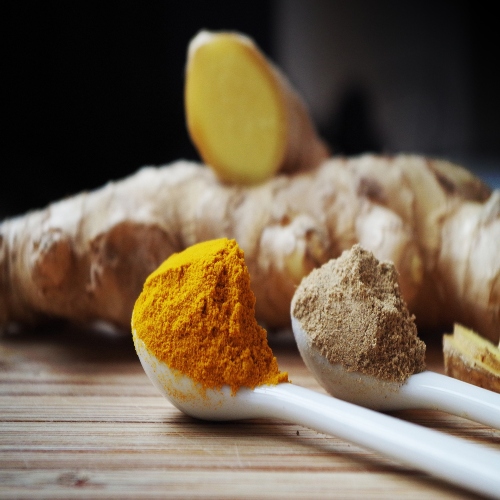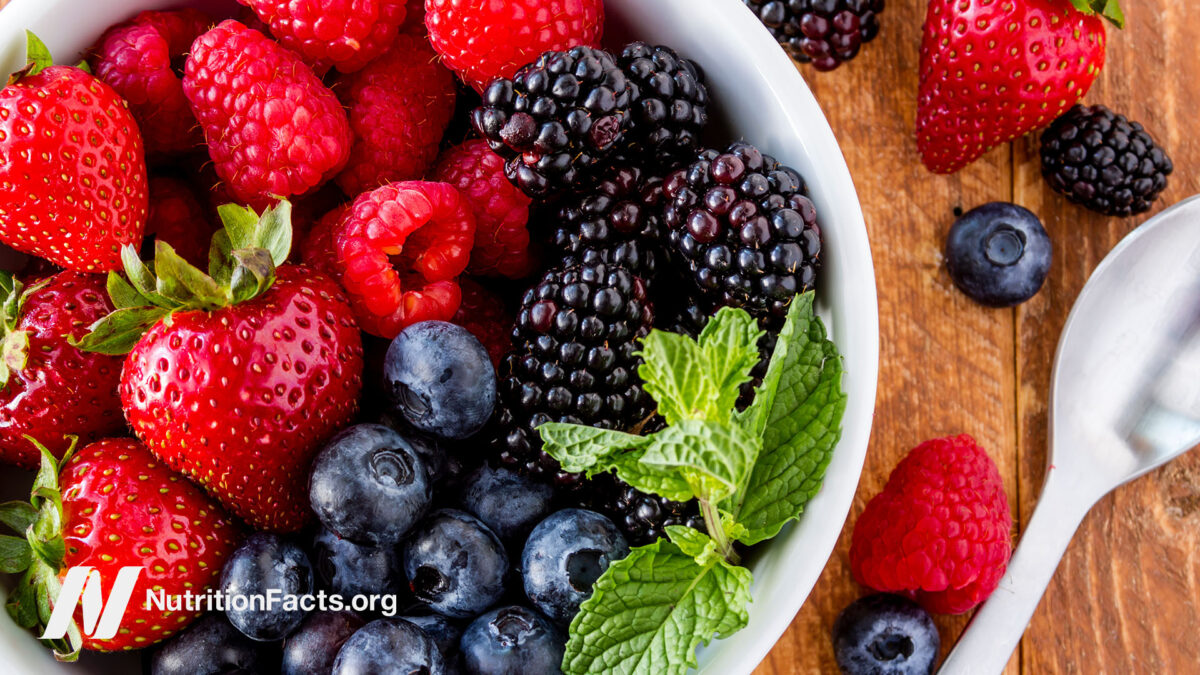
Anti-inflammatory
Widespread meta-inflammation occurs throughout our lives. It appears in part to be our immune system’s reaction to many unhealthy aspects of daily living—from environmental factors, like traffic pollution and toxic chemicals, to our everyday lifestyle choices, such as cigarettes, sleep, chronic stress, and physical activity level. However, we may introduce into our body the primary driver of meta-inflammatory chronic disease multiple times a day—every time we eat.
Researchers developed the Dietary Inflammatory Index scoring system. The more pro-inflammatory foods we eat on a daily basis, the higher our score, and the more anti-inflammatory foods we eat, the lower our score.
Generally, components of animal products and processed foods, like saturated fat, trans fat, and cholesterol, were found to be pro-inflammatory, while constituents of whole plant foods, such as fiber and phytonutrients, came up strongly anti-inflammatory.
Overall, eating a more inflammatory diet has been associated with 75 percent increased odds of having cancer and 67 percent increased risk of dying from it, the development of frailty and increased fall risk in the elderly, impaired memory and cognitive dysfunction, and worse mental health, including higher rates of depression, and anxiety, and lower sleep quality. Not surprisingly, those eating more anti-inflammatory diets appear to live longer lives with less functional disability.
The spice turmeric is the single most anti-inflammatory food, followed by ginger and garlic, and tea, green or black, is the most anti-inflammatory beverage. Fiber and flavones are the most anti-inflammatory food components. Dietary fiber, found in all whole plant foods, is most highly concentrated in whole grains and legumes. Flavones are plant compounds concentrated in fruits, herbs, and vegetables.
Given that saturated fat ranks as the single most pro-inflammatory food component and fiber as the single most anti-inflammatory food component, an anti-inflammatory diet would be one centered around whole plant foods.
For substantiation of any statements of fact from the peer-reviewed medical literature, please see the associated videos below.
Image Credit: Pixabay
Popular Videos for Anti-inflammatory


Anti-Inflammatory Diet for Depression
If depression can be induced with pro-inflammatory drugs, might an anti-inflammatory diet be effective in...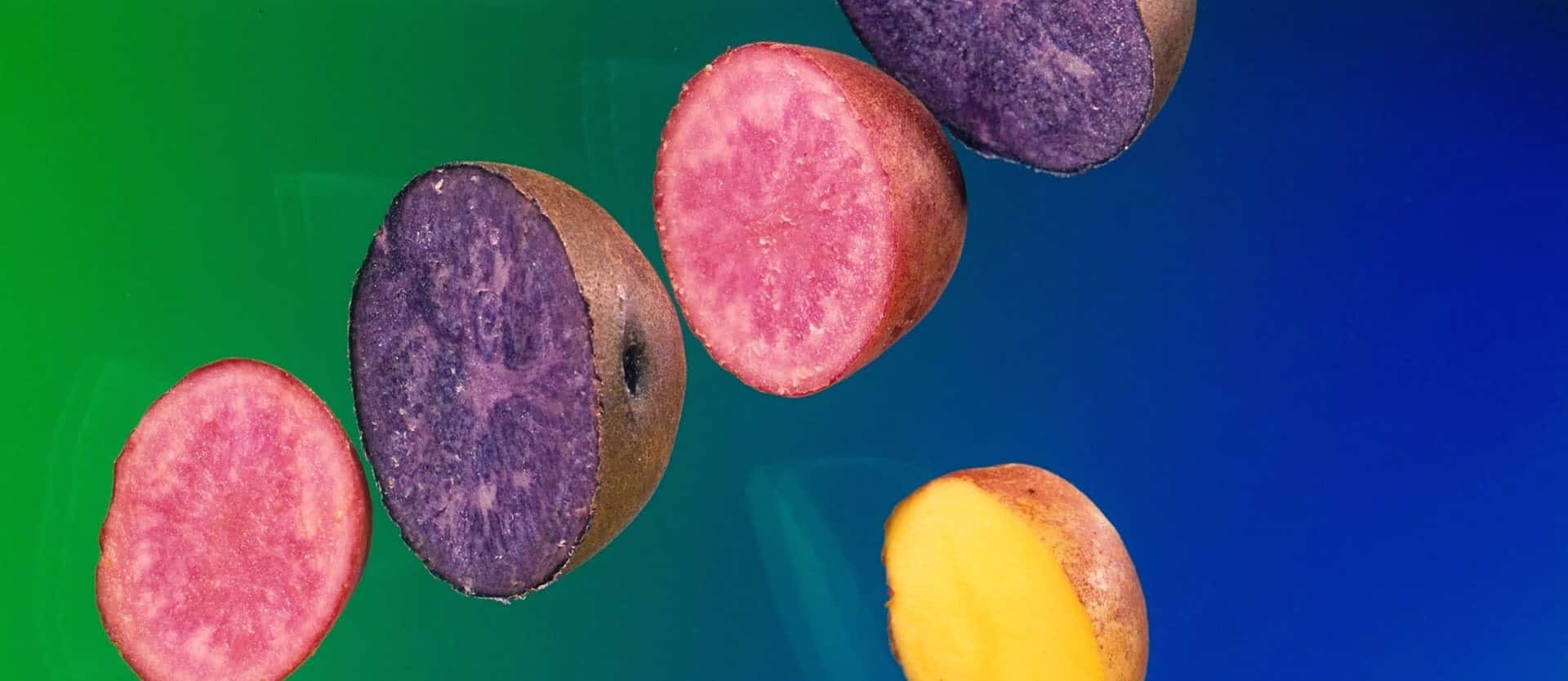
Anti-Inflammatory Effects of Purple Potatoes
Antioxidant, anti-inflammatory properties of white compared to yellow and purple potatoes. Purple potatoes may also...
Anti-Inflammatory Diet for Lupus
Green smoothies are put to the test for the autoimmune disease SLE (lupus).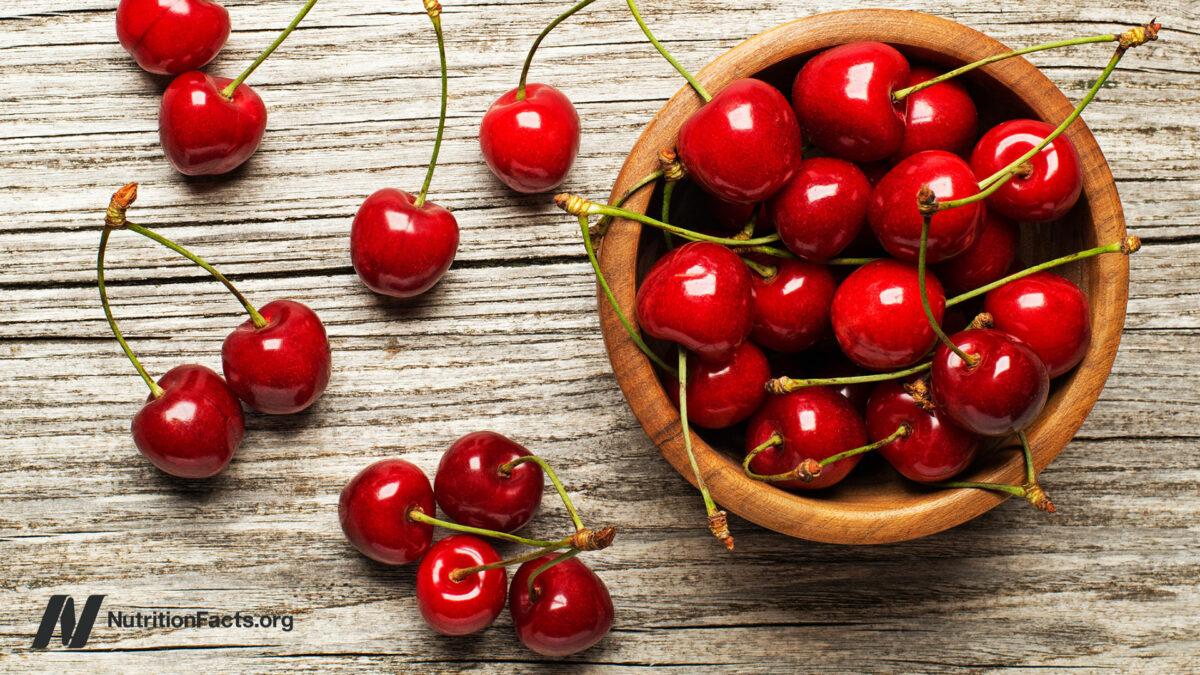
Anti-Inflammatory Life Is a Bowl of Cherries
Sweet red Bing cherries may act as a selective COX-2 inhibitor, reducing inflammation without the...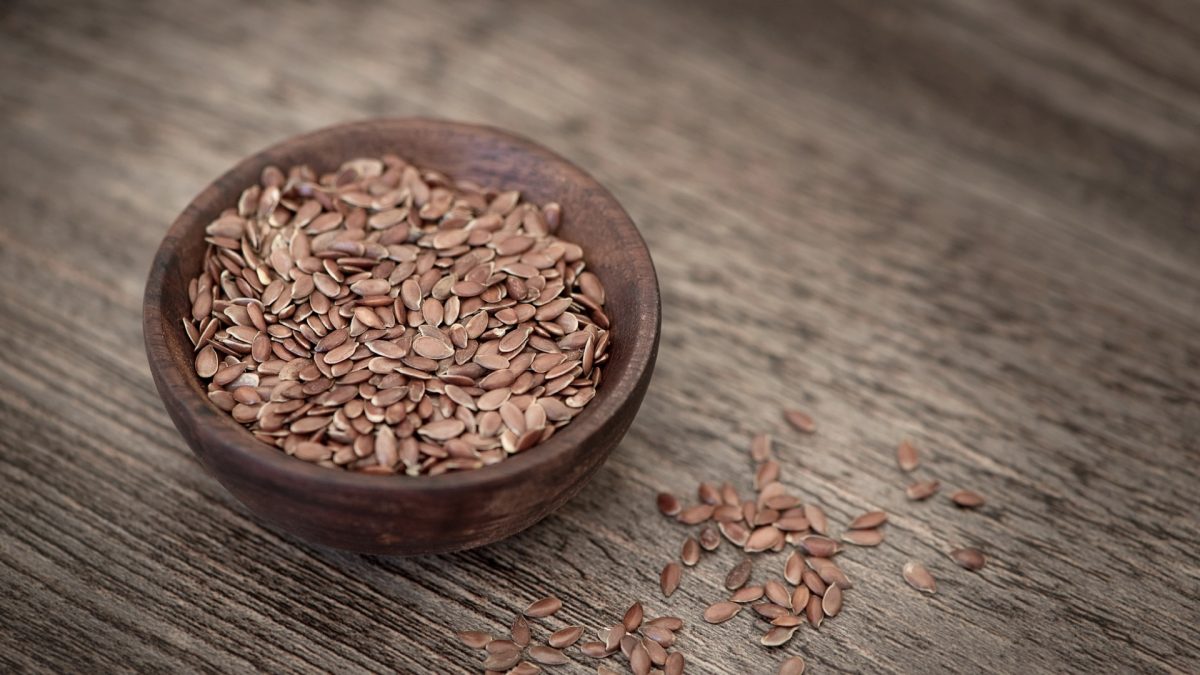
Benefits of Flaxseeds for Inflammation
Elevated levels of pro-inflammatory, aging-associated oxylipins can be normalized by eating ground flaxseed.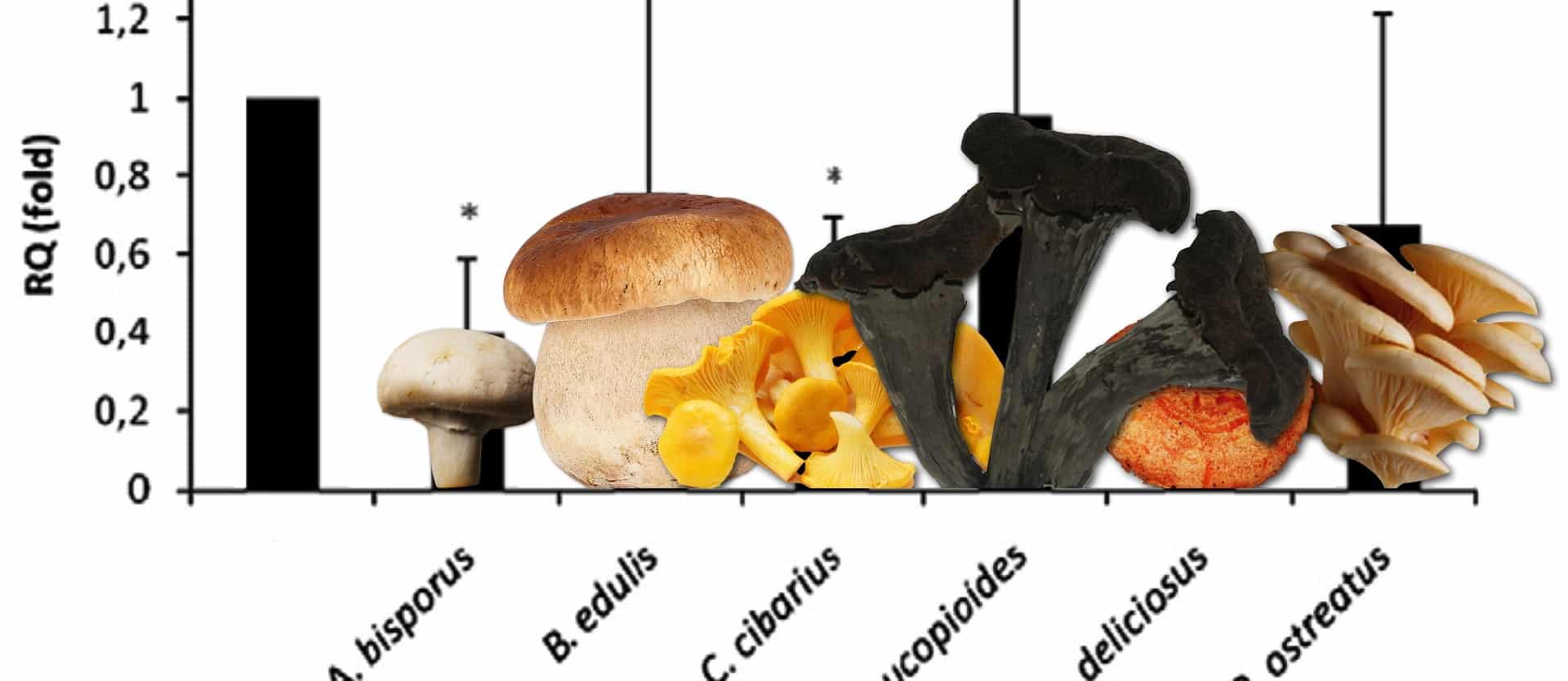
Boosting Immunity While Reducing Inflammation
Cooked white mushroom consumption stimulates antibody production, while potentially still playing an anti-inflammatory role.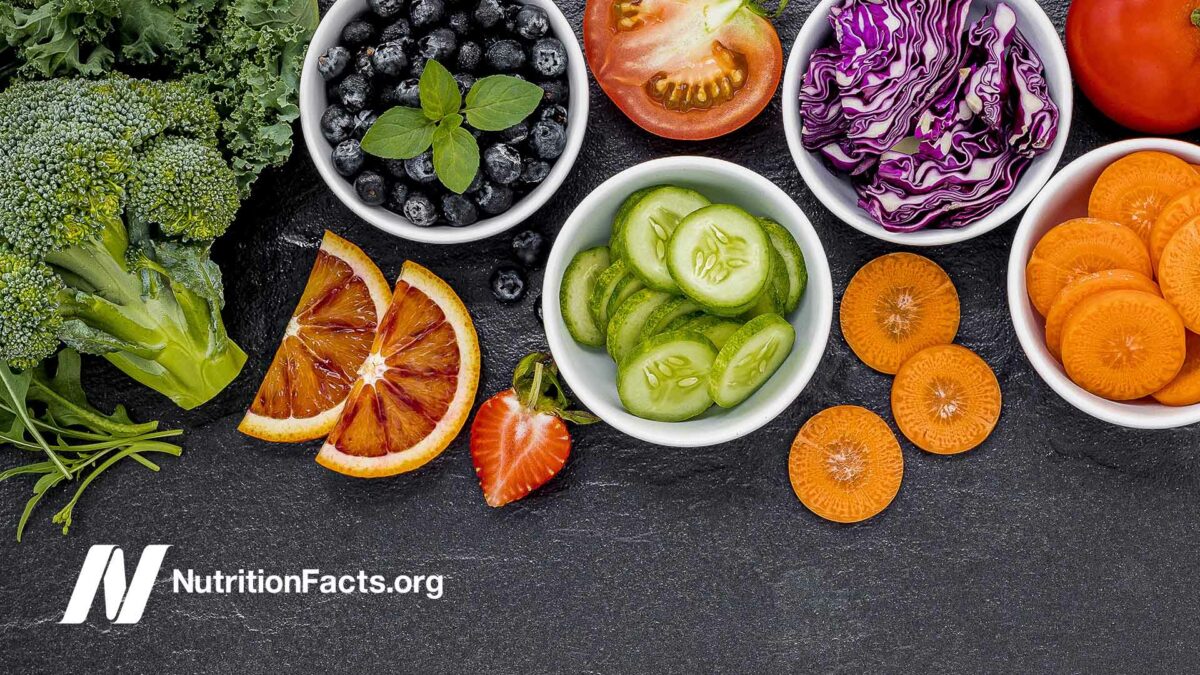
Anti-Inflammatory Antioxidants
Even when choosing the same quantity of fruits and vegetables, those making higher antioxidant choices...All Videos for Anti-inflammatory
-

Anti-Inflammatory Foods: The Benefits of Berries
Which fruits have anti-inflammatory effects and which do not?
-

The Best Diet for COVID and Long-COVID
Healthy plant-based diets appear to help reduce the risk of severe COVID-19 and getting infected in the first place, even independent of comorbidities.
-

Greens, Green Tea, and Nuts Put to the Test for Telomeres
Not all plant foods are linked to less cellular aging based on telomere attrition, and not all animal foods are linked to more.
-

What to Eat to Prevent Telomere Shortening
The anti-inflammatory and antioxidant properties of plant-based diets may explain why they can effectively reverse cellular aging by elongating telomeres.
-

How Does Oatmeal Help with Blood Sugars?
The prebiotic fiber in oats helps to explain why oatmeal can improve diabetic control.
-

The Best Diet for Fibromyalgia and Other Chronic Pain Relief
Anti-inflammatory diets can be effective in alleviating chronic pain syndromes.
-

Diet and Lifestyle for Cancer Prevention and Survival
What kind of diet should cancer patients eat?
-

Advanced Glycation End Products (AGEs) and Cognitive Decline
AGEs may be one explanation for why those who consume meat may have up to three times the risk of developing dementia compared with vegetarians.
-

Why All Athletes Should Eat Plant-Based Diets
Enhance athletic performance with diet.
-

How to Naturally Reduce Wrinkles with Food
Almonds are put to the test in a randomized controlled trial for facial wrinkles.
-

The Best Diet for Healthy Aging
Swapping just 1 percent of plant protein in place of animal protein was associated with significantly less age-related deficit accumulation.
-

The Role of Kimchi and H. Pylori in Stomach Cancer
What explains the Achilles’ heel in certain Asian diets?
-

How to Keep Your Microbiome Healthy with Prebiotic Foods
We co-evolved a symbiosis with our good gut bacteria, but we are not holding up our end of the bargain.
-

Do Vitamin C Supplements Help with Anxiety?
What are the risks and benefits of using vitamin C for depression and anxiety?
-

The Healthiest Type of Potato
Are yellow-fleshed potatoes healthier than white? And, what about the glycoalkaloid toxins?
-

Which Foods Are Anti-Inflammatory?
Foods that reduce inflammation. What does an anti-inflammatory diet look like?
-

Pomegranate: A Natural Treatment for Rheumatoid Arthritis
Pomegranates are put to the test for weight loss, diabetes, COPD, prostate cancer, osteoarthritis, and rheumatoid arthritis.
-

Extra Virgin Olive Oil for Arthritis
What happened when topical olive oil was pitted against an ibuprofen-type drug for osteoarthritis and rheumatoid arthritis?
-

Fasting for Post-Traumatic Brain Injury Headache
What effect do fasting and a plant-based diet have on TBI and migraines?
-

The Role Meat May Play in Triggering Parkinson’s Disease
What does the gut have to do with developing Parkinson’s disease?
-

Fiber vs. Low FODMAP for SIBO Symptoms
It may not be the number of bacteria growing in your small intestine, but the type of bacteria, which can be corrected with diet.
-

Diet for Hypothyroidism: A Natural Treatment for Hashimoto’s Disease
What were the results of a randomized, double-blind, placebo-controlled trial of a half teaspoon of powdered black cumin a day in Hashimoto’s (autoimmune thyroiditis) patients?
-

The Best Diet for Hypothyroidism and Hyperthyroidism
Is the apparent protection of plant-based diets for thyroid health due to the exclusion of animal foods, the benefits of plant foods, or both?
-

The Best Diet for Crohn’s Disease Treatment
Switching to a plant-based diet has been shown to achieve far better outcomes than those reported on conventional treatments in both active and quiescent stages in both Crohn’s disease and ulcerative colitis.
-

The Best Diet for Ulcerative Colitis Treatment
Plant-based diets can be 98 percent effective in keeping ulcerative colitis patients in remission, blowing away other treatments.
-

The Optimal Vitamin B12 Dosage for Kids, Pregnancy, and Seniors
At age 50, everyone, regardless of diet should start supplementing with B12-fortified foods or supplements but over age 65 only high-dose daily supplements may suffice.
-

Anti-Inflammatory Diet for Lupus
Green smoothies are put to the test for the autoimmune disease SLE (lupus).
-

Are Ancient Grains Healthier?
Ancient wheats like kamut are put to the test for inflammation, blood sugar, and cholesterol control.
-

Benefits of Grapes for Brain Health
Grape juice and whole grapes are put to the test for brain function, including cognitive decline in early Alzheimer’s.
-

Are Pre-Cut Vegetables Just as Healthy?
Endotoxins can build up on pre-chopped vegetables and undermine some of their benefits.
-

Is Fiber an Effective Anti-Inflammatory?
Most Americans get less than half the recommended minimum fiber intake a day and the benefits of fiber go way beyond bowel regularity.
-

Anti-Inflammatory Diet for Depression
If depression can be induced with pro-inflammatory drugs, might an anti-inflammatory diet be effective in preventing and treating mood disorders?
-

Caution: Anti-Inflammatory Foods in the Third Trimester
For the same reason that anti-inflammatory drugs like aspirin and ibuprofen are advised against during late pregnancy, anti-inflammatory foods may increase the risk of premature closure of the ductus arteriosus.
-

Anti-Inflammatory Life Is a Bowl of Cherries
Sweet red Bing cherries may act as a selective COX-2 inhibitor, reducing inflammation without the damage to our stomach and gut lining caused by NSAID drugs like ibuprofen.
-

Anti-Inflammatory Effects of Purple Potatoes
Antioxidant, anti-inflammatory properties of white compared to yellow and purple potatoes. Purple potatoes may also help lower high blood pressure.
-

Anti-Inflammatory Antioxidants
Even when choosing the same quantity of fruits and vegetables, those making higher antioxidant choices experienced a reduction in C-reactive protein (inflammation) levels.
